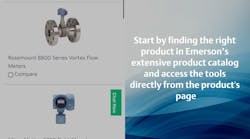After receiving input from stakeholders including community groups, industry, and the states, the U.S. Environmental Protection Agency (EPA) is proposing to update the toxic air pollution standards for petroleum refineries. The agency’s proposal aims to further reduce toxic pollution from flaring and other processes and includes new monitoring requirements.
READ ALSO: US Supreme Court Upholds Rule Designed to Limit Nitrogen Oxide and Sulfur Dioxide Emissions
The agency’s proposal would, for the first time, require monitoring of air concentrations of benzene around the fence line perimeter of refineries to help control emissions.
The proposal would also require upgraded emission controls for storage tanks including controls for smaller tanks; performance requirements for flares to ensure that waste gases are properly destroyed; and emissions standards for delayed coking units, which are currently a significant unregulated source of toxic air emissions at refineries.
When these proposed updates are fully implemented, the EPA estimates toxic air emissions, including benzene, toluene, and xylene, would be reduced by 5,600 tons per year, while volatile organic compound emissions would be cut by approximately 52,000 tons per year.


